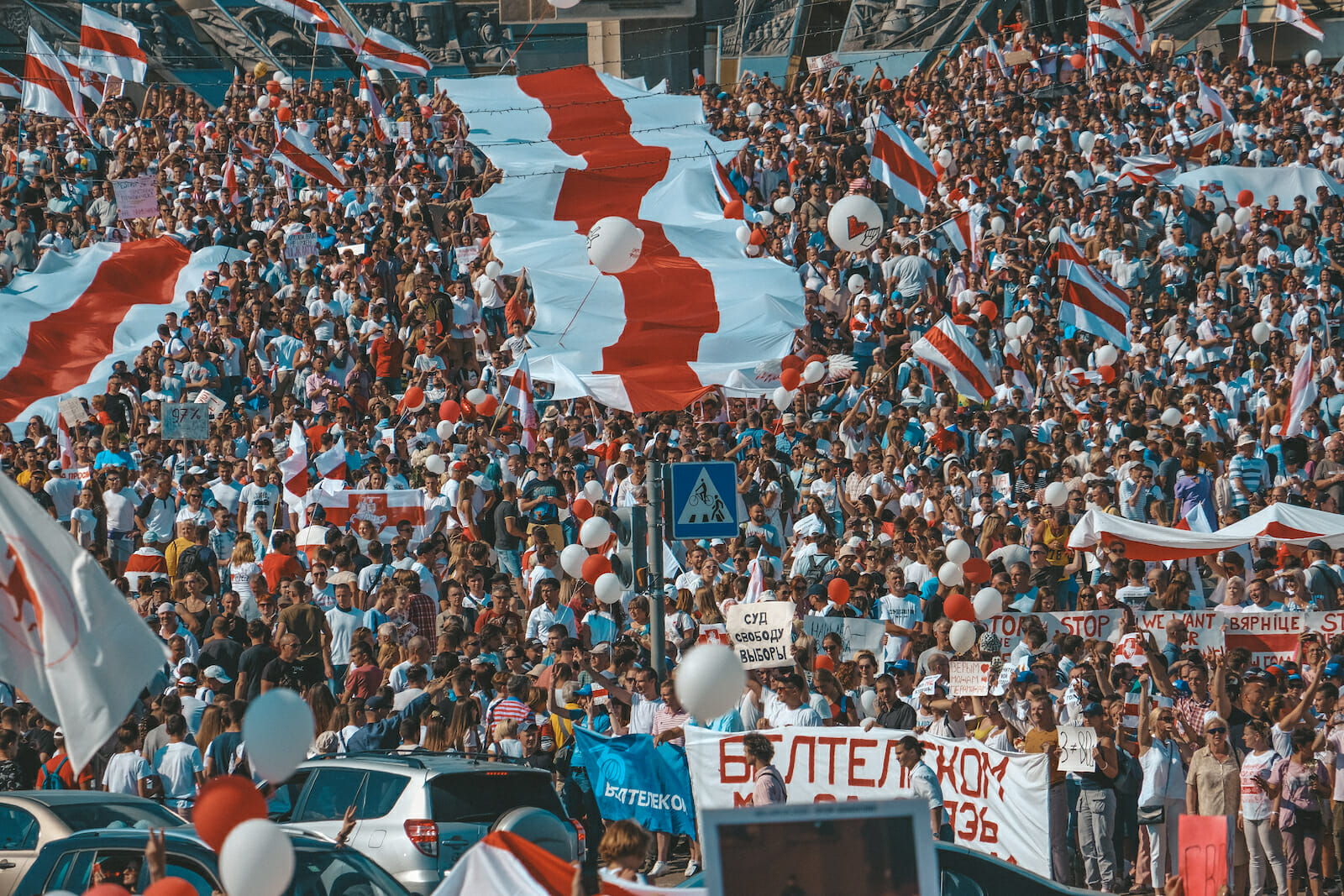
Putin is the Key to Solving Belarus’ Conflict
Beatings, torture, and violent confrontations between peaceful protestors and Belarusian security forces are part of Belarus’ pro-democracy uprising against President Alexander Lukashenko. Lukashenko’s fear of being overthrown by the current protests has forced him to ask for support from Russia. President Vladimir Putin agreed to extend his support to Lukashenko for now. However, Putin should no longer prop up Lukashenko and instead, should focus on negotiating a political transition with the opposition. Through these actions, Putin has a better chance of maintaining Russia’s sphere of influence in Belarus, as well as increase economic, political, and military integration between both countries.
Putin expressed that he has Russian forces ready to intervene if the protests escalate. Some experts argue that Russia’s intervention in Belarus would expand Russia’s influence in the region. However, Putin would be better off supporting the opposition over Lukashenko. Russian intervention in Belarus would push Belarusians to ask Western countries for assistance. This assistance and Russia’s intervention in the country could create pro-Western sentiments among Belarusians like it did in Georgia and Ukraine when Russia intervened in both countries. In the case of Georgia and Ukraine, Russia invaded both territories to prevent these countries from moving toward the West. However, Russia’s intervention caused the opposite by creating resistance to Russia’s occupation and generating support towards the West.
For these reasons, the Kremlin does not want an alliance between Belarus and the West since it will reduce its sphere of influence in a country that is one of its closest partners. However, Putin can still keep his influence in Belarus by taking a less aggressive approach towards the situation like he successfully did in Armenia. In Armenia’s case, Putin negotiated a political transition to Karen Karapetyan after pro-Russian President Serzh Sargsyan left office. Similar to Armenia, Putin can negotiate a political transition with the opposition instead of intervening in the country. Moreover, by supporting the opposition in Belarus, Russia would be taking a more active role than Western countries in helping Belarus, which will increase Russia’s popularity among Belarusians and turn any pro-Western sentiments into pro-Russian sentiments.
Furthermore, supporting the opposition over Lukashenko would help Russia to foster pro-Russian sentiments and deepen Russia’s ties with Belarus. This strategy would decrease the anti-Russian sentiments that may arise if Russia continues to support Lukashenko. According to a survey conducted by MGIMO University, almost 90% of Belarusians want to be on friendly terms with Russia; however, this data could change if Russia keeps supporting Lukashenko. Putin has an opportunity to help the opposition get rid of their oppressor, which would generate pro-Russian sentiments among the population. This increase in Russia’s popularity among the Belarusians could help Russia achieve one of its main goals with Belarus: to increase integration between both countries. For quite a while now, Russia has wanted to expand its economic, political, and military ties with Belarus, but this has not been possible due to Lukashenko’s opposition. However, with Lukashenko out of power and with Russia gaining popularity among Belarusians as a trustworthy ally, Belarusians would be less reluctant to integrate with Russia.
Putin is supporting Lukashenko because having a pro-Russian leader is essential for Russia’s influence in Belarus. If Lukashenko was a trustworthy Russian ally, Putin might consider supporting him. However, Lukashenko has proved many times to be a disloyal partner to Russia by pitting the European Union, the United States, and Russia against each other since the beginning of his presidency. Lukashenko is at a disadvantageous position since he has no leverage to negotiate with Putin and no allies other than Russia, which means that Lukashenko cannot offer any resistance if Putin decides to withdraw his support. For this reason, it is in Russia’s best interests to negotiate a political transition with the opposition to ensure that the Kremlin maintains its interests with the Belarusian government, regardless of who gets elected as the new president.
The Belarusian opposition has expressed their willingness to continue good relations with Russia; however, Putin has not initiated conversations with them for two reasons. First, Putin cannot let the world see how popular protests in Belarus could overthrow a dictatorship as it could create a revolt in his own country. Second, he cannot completely control the outcome of an election in Belarus, which could put Russia’s interests—maintaining influence in Belarus and amplifying integration—at stake. However, a constitutional reform, which mandates new presidential elections, can decrease the influence that the Belarusian uprisings could have in ceasing the dictatorship. This scenario is likely to happen as Lukashenko has previously considered the idea of constitutional reform. Moreover, by expressing his support for the opposition, Putin will ensure that regardless of the outcome of the election, Russia will maintain its interests in the region.
Russia can walk out of Belarus’ conflict as a stronger ally of the country. Putin has Lukashenko at his mercy and the opposition is willing to initiate talks with Russia. The Kremlin has an opportunity to keep its sphere of influence in Belarus and the possibility to deepen its ties with the neighboring country. The civil uprisings in Belarus can end in various ways, but Putin has a chance to control the outcomes of these uprisings into one that is favorable to Russia.

